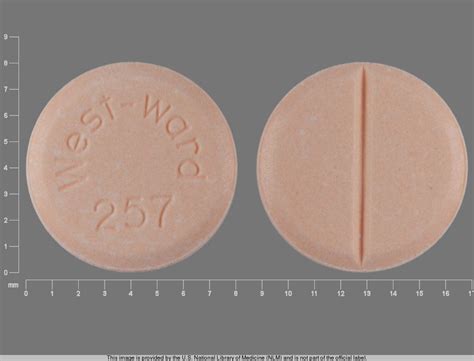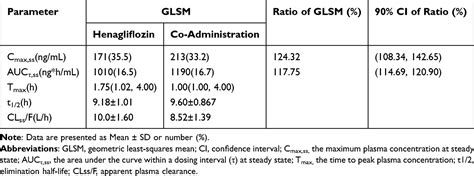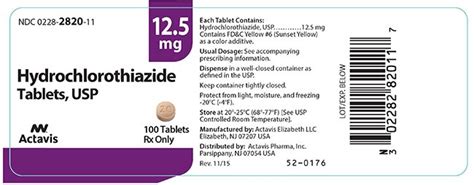Intro
Discover what HCTZ is used for, including its role in treating hypertension, edema, and heart failure, with benefits of diuretic therapy and management of fluid retention.
Hydrochlorothiazide, commonly referred to as HCTZ, is a type of diuretic medication that is used to treat various health conditions. It is a thiazide diuretic, which means it works by helping the kidneys remove excess fluid and salt from the body through urine. This process can help to reduce blood pressure, alleviate swelling, and improve symptoms associated with certain medical conditions.
The importance of HCTZ lies in its ability to manage and treat conditions such as high blood pressure, edema, and kidney disease. By reducing the amount of fluid in the body, HCTZ can help to lower blood pressure, reduce swelling, and decrease the strain on the kidneys. This can be especially beneficial for individuals who are at risk of developing complications from these conditions, such as heart disease, stroke, and kidney failure.
As a widely prescribed medication, HCTZ has been extensively studied and researched to understand its effects and benefits. Its mechanism of action involves increasing the production of urine, which helps to remove excess fluid and salt from the body. This can lead to a range of benefits, including reduced blood pressure, improved kidney function, and alleviated symptoms of edema. With its proven track record and relatively low risk of side effects, HCTZ has become a staple in the treatment of various health conditions.
What Is HCTZ Used For

HCTZ is primarily used to treat conditions such as high blood pressure, edema, and kidney disease. It can also be used to treat other conditions, including nephrotic syndrome, congestive heart failure, and cirrhosis of the liver. By reducing the amount of fluid in the body, HCTZ can help to alleviate symptoms such as swelling, shortness of breath, and fatigue. Additionally, HCTZ can be used in combination with other medications to treat conditions such as hypertension and heart failure.
The benefits of using HCTZ include its ability to lower blood pressure, reduce swelling, and improve kidney function. It is also relatively inexpensive and widely available, making it a accessible treatment option for many individuals. However, like all medications, HCTZ can have side effects, including dizziness, lightheadedness, and increased urination. It is essential to follow the recommended dosage and consult with a healthcare professional to minimize the risk of side effects.
How Does HCTZ Work
HCTZ works by increasing the production of urine, which helps to remove excess fluid and salt from the body. This process can lead to a range of benefits, including reduced blood pressure, improved kidney function, and alleviated symptoms of edema. The mechanism of action involves the inhibition of the sodium-chloride cotransporter in the distal convoluted tubule of the kidney. This leads to an increase in the excretion of sodium and chloride ions, which in turn increases the production of urine.The effects of HCTZ can be seen within a few hours of taking the medication, with the peak effect occurring within 4-6 hours. The duration of action can last for up to 12 hours, making it a convenient treatment option for individuals who need to manage their condition throughout the day. However, it is essential to follow the recommended dosage and consult with a healthcare professional to ensure the safe and effective use of HCTZ.
Benefits Of HCTZ

The benefits of HCTZ include its ability to lower blood pressure, reduce swelling, and improve kidney function. It can also be used to treat other conditions, including nephrotic syndrome, congestive heart failure, and cirrhosis of the liver. Additionally, HCTZ can be used in combination with other medications to treat conditions such as hypertension and heart failure.
Some of the key benefits of HCTZ include:
- Lowering blood pressure: HCTZ can help to reduce blood pressure by removing excess fluid and salt from the body.
- Reducing swelling: HCTZ can help to alleviate symptoms of edema, including swelling in the feet, ankles, and hands.
- Improving kidney function: HCTZ can help to improve kidney function by reducing the amount of fluid in the body and increasing the production of urine.
- Treating other conditions: HCTZ can be used to treat other conditions, including nephrotic syndrome, congestive heart failure, and cirrhosis of the liver.
Side Effects Of HCTZ
While HCTZ is generally well-tolerated, it can have side effects, including dizziness, lightheadedness, and increased urination. Other potential side effects include: * Headache * Fatigue * Nausea and vomiting * Diarrhea * ConstipationIt is essential to follow the recommended dosage and consult with a healthcare professional to minimize the risk of side effects. Additionally, individuals who are taking HCTZ should be aware of the potential interactions with other medications, including potassium supplements, lithium, and nonsteroidal anti-inflammatory drugs (NSAIDs).
Interactions With HCTZ

HCTZ can interact with other medications, including potassium supplements, lithium, and nonsteroidal anti-inflammatory drugs (NSAIDs). It is essential to consult with a healthcare professional before taking HCTZ, especially if you are taking other medications.
Some of the potential interactions with HCTZ include:
- Potassium supplements: HCTZ can increase the risk of hypokalemia (low potassium levels) when taken with potassium supplements.
- Lithium: HCTZ can increase the levels of lithium in the body, which can increase the risk of lithium toxicity.
- Nonsteroidal anti-inflammatory drugs (NSAIDs): HCTZ can increase the risk of kidney damage when taken with NSAIDs.
It is also important to note that HCTZ can interact with certain foods, including grapefruit and grapefruit juice. Grapefruit and grapefruit juice can increase the levels of HCTZ in the body, which can increase the risk of side effects.
Precautions When Taking HCTZ
When taking HCTZ, it is essential to follow the recommended dosage and consult with a healthcare professional to minimize the risk of side effects. Additionally, individuals who are taking HCTZ should be aware of the potential precautions, including: * Allergic reactions: HCTZ can cause allergic reactions, including hives, itching, and difficulty breathing. * Pregnancy and breastfeeding: HCTZ should be used with caution in pregnant and breastfeeding women, as it can pass into the breast milk and affect the baby. * Kidney disease: HCTZ can worsen kidney disease, especially in individuals with severe kidney disease. * Liver disease: HCTZ can worsen liver disease, especially in individuals with severe liver disease.It is also important to note that HCTZ can affect blood sugar levels, especially in individuals with diabetes. Individuals who are taking HCTZ should monitor their blood sugar levels closely and consult with a healthcare professional if they experience any changes.
Dosage And Administration Of HCTZ

The dosage and administration of HCTZ can vary depending on the individual and the condition being treated. Typically, the recommended dosage of HCTZ is 25-100 mg per day, taken in a single dose or divided into multiple doses.
Some of the key considerations when taking HCTZ include:
- Taking the medication with food: HCTZ can be taken with or without food, but it is recommended to take it with food to minimize the risk of stomach upset.
- Taking the medication at the same time every day: HCTZ should be taken at the same time every day to maintain a consistent level of the medication in the body.
- Monitoring blood pressure and kidney function: Individuals who are taking HCTZ should monitor their blood pressure and kidney function closely, especially when first starting the medication.
It is also important to note that HCTZ can be used in combination with other medications to treat conditions such as hypertension and heart failure. Individuals who are taking HCTZ should consult with a healthcare professional to determine the best course of treatment for their specific condition.
Overdose And Toxicity Of HCTZ
While HCTZ is generally well-tolerated, it can cause overdose and toxicity, especially when taken in high doses or combined with other medications. Symptoms of overdose and toxicity can include: * Dizziness and lightheadedness * Headache and fatigue * Nausea and vomiting * Diarrhea and abdominal cramps * Increased urination and thirstIf you suspect an overdose or toxicity, it is essential to seek medical attention immediately. Treatment may involve supportive care, such as hydration and monitoring of vital signs, as well as administration of medications to counteract the effects of HCTZ.
Conclusion And Final Thoughts

In conclusion, HCTZ is a widely prescribed medication that can be used to treat a range of conditions, including high blood pressure, edema, and kidney disease. While it is generally well-tolerated, it can have side effects and interact with other medications. It is essential to follow the recommended dosage and consult with a healthcare professional to minimize the risk of side effects and ensure the safe and effective use of HCTZ.
If you have any questions or concerns about HCTZ, we encourage you to comment below or share this article with others who may be interested. Additionally, we invite you to take a moment to review the FAQs section below, which provides additional information and answers to common questions about HCTZ.
What is HCTZ used for?
+HCTZ is used to treat conditions such as high blood pressure, edema, and kidney disease. It can also be used to treat other conditions, including nephrotic syndrome, congestive heart failure, and cirrhosis of the liver.
How does HCTZ work?
+HCTZ works by increasing the production of urine, which helps to remove excess fluid and salt from the body. This process can lead to a range of benefits, including reduced blood pressure, improved kidney function, and alleviated symptoms of edema.
What are the side effects of HCTZ?
+The side effects of HCTZ can include dizziness, lightheadedness, and increased urination. Other potential side effects include headache, fatigue, nausea and vomiting, diarrhea, and constipation.
Can HCTZ interact with other medications?
+Yes, HCTZ can interact with other medications, including potassium supplements, lithium, and nonsteroidal anti-inflammatory drugs (NSAIDs). It is essential to consult with a healthcare professional before taking HCTZ, especially if you are taking other medications.
What is the recommended dosage of HCTZ?
+The recommended dosage of HCTZ can vary depending on the individual and the condition being treated. Typically, the recommended dosage of HCTZ is 25-100 mg per day, taken in a single dose or divided into multiple doses.
